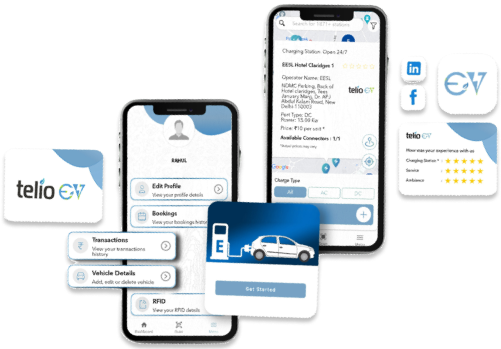Readers Views Point on OCPI and Why it is Trending on Social Media
Readers Views Point on OCPI and Why it is Trending on Social Media
Blog Article
Enhancing Electric Vehicle Charging with Advanced Management Software

The fast adoption of electric vehicles (EVs) has demanded the development of effective and user-friendly charging solutions. Central to this advancement are Electric Vehicle Charging Management Software (EV CMS) and EV Charging Apps, which streamline the charging procedure for both operators and users.
Understanding EV Charging Management Software
EV Charging Management Software works as a comprehensive platform that allows Charge Point Operators (CPOs) and other stakeholders to monitor, manage, and optimize EV charging stations. Key functionalities consist of real-time tracking of charging stations, user authentication, payment processing, and energy management. By integrating these features, the software makes sure effective operation and enhances the user experience.
Key Features of EV Charging Management Software
1. Real-Time Monitoring and Control: Operators can supervise the status of charging stations, track energy usage, and address concerns promptly.
2. User Authentication and Access Control: The software manages user access, guaranteeing that just authorized individuals can make use of the charging centers.
3. Payment Processing: It facilitates seamless transactions, supporting different payment techniques to deal with varied user choices.
4. Energy Management: By optimizing energy distribution, the software reduces operational costs and supports grid stability.
5. Reporting and Analytics: Comprehensive data analysis aids in informed decision-making and strategic planning for network expansion.
The Role of EV Charging Apps
EV Charging Apps are developed to offer EV owners with practical access to charging facilities. These applications provide functions such as finding close-by charging stations, real-time schedule updates, navigation help, and remote tracking of charging sessions. By boosting availability and user engagement, these apps play a vital function in promoting the adoption of electric vehicles.
Combination with Open Charge Point Interface (OCPI)
The Open Charge Point Interface (OCPI) is a standardized procedure that helps with interoperability between different EV charging networks. Integration with OCPI permits smooth roaming, allowing users to access multiple charging networks with a single account. This interoperability enhances user convenience and broadens the ease of access of charging infrastructure.
Benefits of Implementing Advanced Charging Solutions
- Enhanced User Experience: User-friendly interfaces and trusted services increase consumer complete satisfaction and loyalty.
- Operational Efficiency: Automation and real-time OCPI monitoring lower manual intervention, decreasing operational costs.
- Scalability: Advanced software solutions support the growth of charging networks to satisfy growing demand.
- Revenue Generation: Flexible rates models and effective payment processing open new income streams for operators.
Conclusion
The combination of EV Charging Management Software and user-centric EV Charging Apps is essential ahead of time the electric vehicle ecosystem. These innovations not only streamline operations for service providers however also substantially improve the charging experience for users. As the EV market continues to grow, the adoption of such advanced solutions will contribute in satisfying the increasing need for effective and accessible charging facilities. Report this page